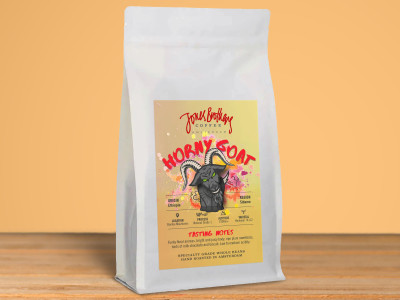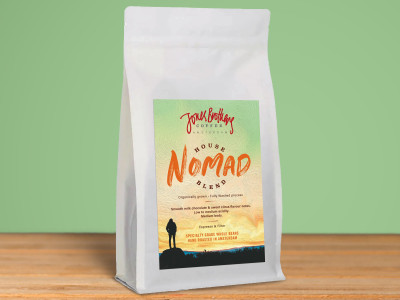Van bonen tot machines, wij kunnen je helpen met al je koffiebehoeften.
Koffiebonen
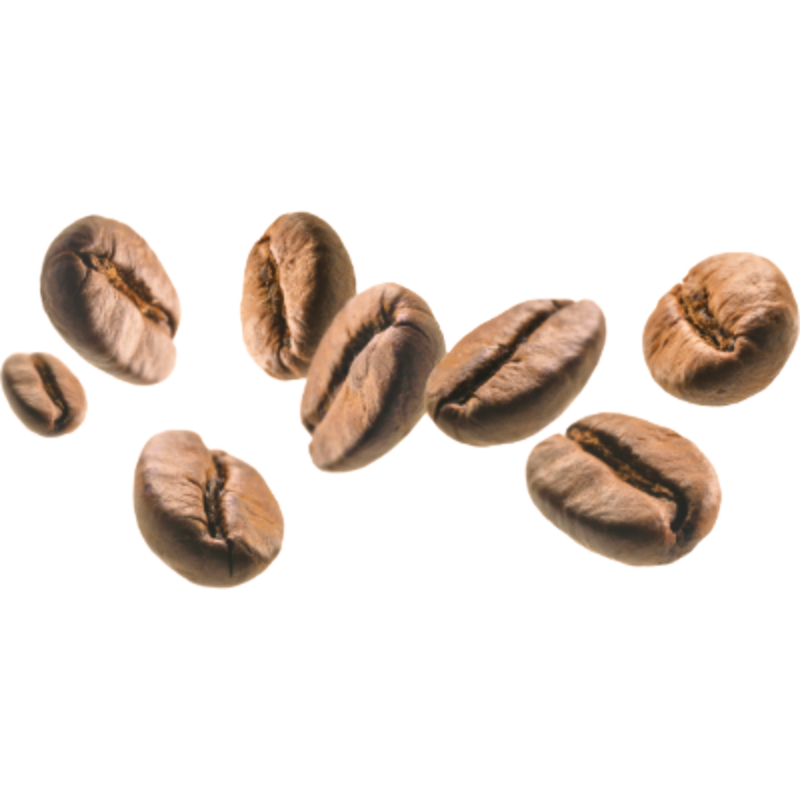
Koffiebonen
Koffiebonen, duurzaam verbouwd, 100% Arabica.
M*lk
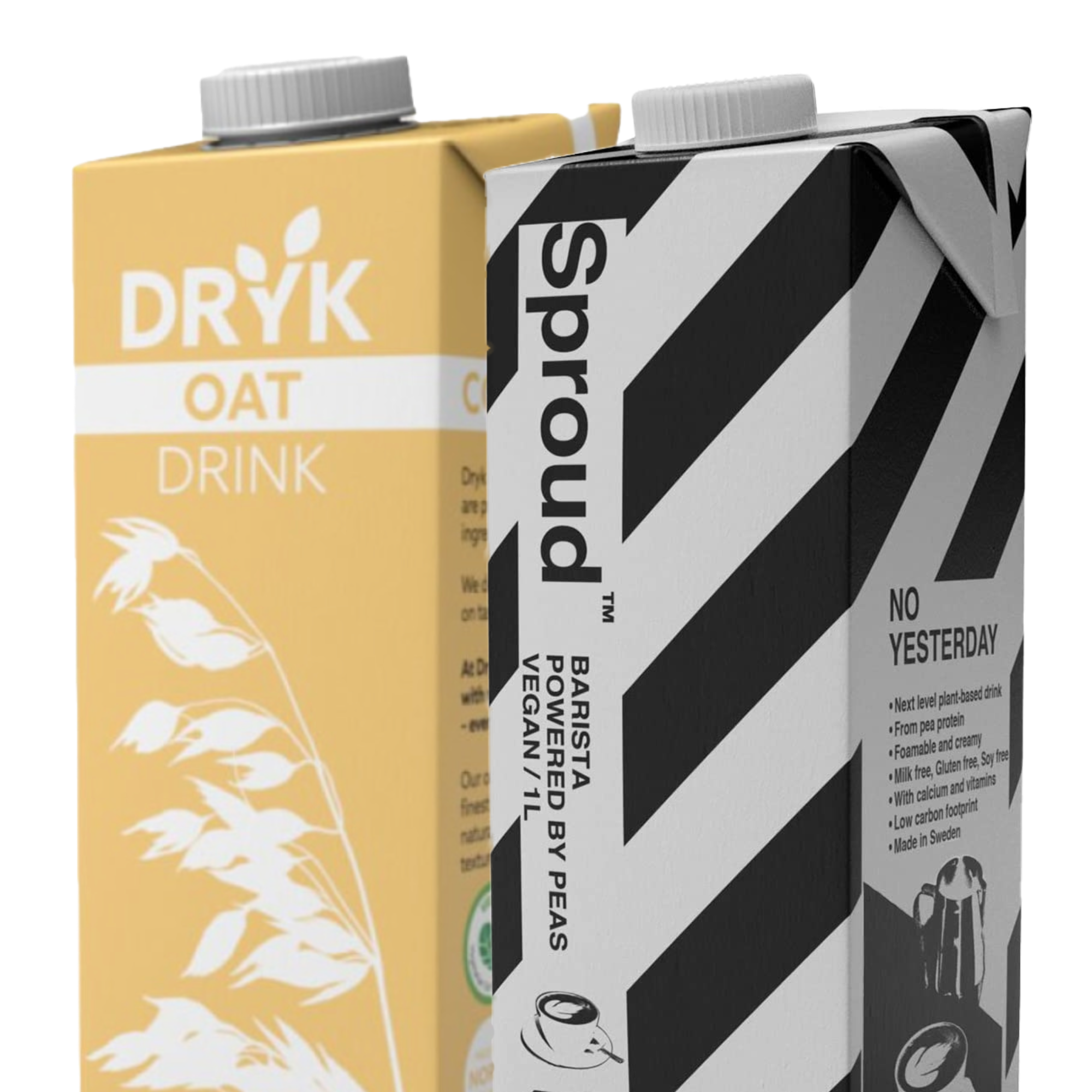
M*lk
Plantaardige melkalternatieven voor bij de koffie.
Accessoires

Accessoires
Geweldige accessoires om je koffie-ervaring te verbeteren.
Moccamaster

Moccamaster
Professionele koffiemachine voor thuis.
What’s the difference between washed coffees and natural coffees?
What’s the difference between washed coffee and natural coffee… This is a question I often get and it is quite an important one to know for a few reasons, but mainly because of the impact it has on the end product in your coffee cup.
Let’s start at the beginning…
It has everything to do with how the coffee is prepared at the farm. We know that the quality and quantity of what mother nature throws at the coffee trees really matters – the amount of sunlight, rain, wind and even the soil mix is part of what distinguishes coffees region to region. But how the farms then ‘process’ their coffees after harvesting adds a further dimension.
Most of what we consume are ‘washed coffees’. This is the process by which once the coffee cherries have been picked from the trees (yes, that’s right, the coffee we drink are the seeds of a red fruit cherry!), they are brought back to the farm (or ‘washing station’) from the plantations and then sorted to remove any defective or non-ripe cherries.
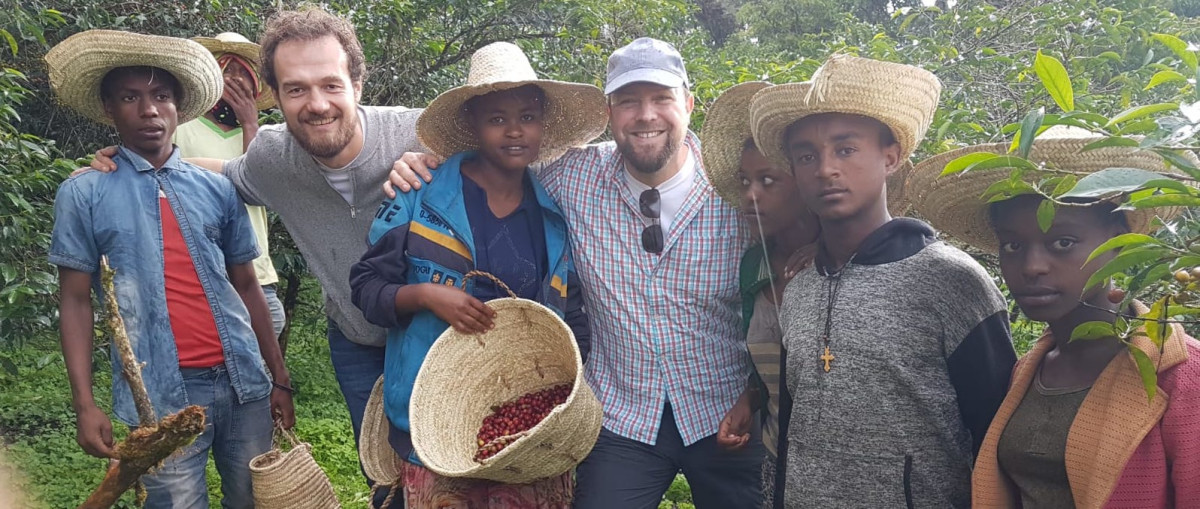
Ethiopian Coffee Harvest
The washing station, as it suggests, then washes off the fruit exterior and separates any unwanted cherries in a flotation tank – ‘floaters’ are used for lower graded coffees or discarded, while ‘sinkers’ pass to the next stage – the drying tables. These are usually ‘raised beds’ where the newly scrubbed bean (at this stage referred to as ‘parchment’ because of the slightly hard exterior shell surrounding each seed) is laid out in the sun and over the course of the next 1-2 weeks are continually sorted by hand while they are drying in the sun. Raised beds are considered a little better as they allow the air to get underneath and around the beans for more consistent drying. Some countries also use flat beds to spread out the beans in the sun. After drying and sorting, the green beans are packed up into big sacks and sent off to the next stage of their journey, the hulling factory, to be prepared for export and consumption.
Natural Process Coffee
‘Natural process’ coffees on the other hand, are prepared differently and, consequently, taste different to washed coffees. The red cherries are initially sorted and screened in the same way, but miss out the washing part, instead, they are put straight into the flotation tanks to wash off any excess dirt, while the fruit part is kept on.
These cleaned cherries are then laid out in the sun in the same way to dry. They are spread out in a single layer and stirred twice an hour. During this phase, it is easy to pick out any damaged cherries that made it through the initial selection.
After a few days, the workers increase the thickness of the layer to slow down the drying a little. Total drying time can take up to three weeks under cloudy conditions, or two weeks with many sunny days. They are then sent to the hulling factory in the same way.
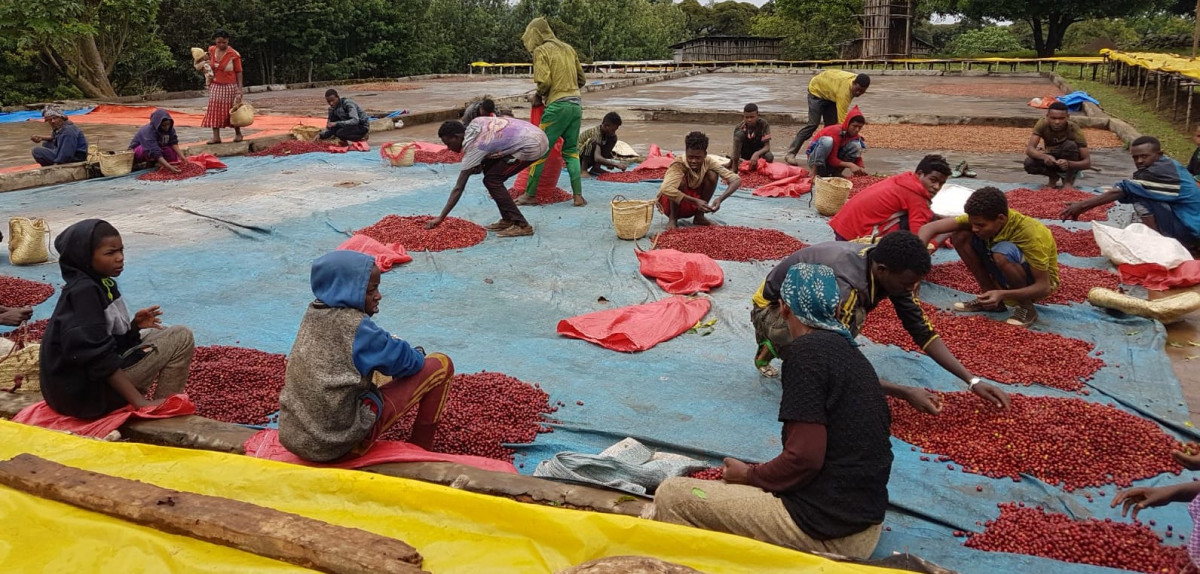
Farmers checking coffee cherries
When prepared in the right way, both at the farm, at the roastery and by the barista, naturally processed beans retain a whole lot more fruit flavor, and often display a distinctive wine-like acidity. They can be quite funky and very sweet, with fresh flavour possibilities that can taste like honeydew melon, cherry, grape, lime, green apple and even peach. They have heavier bodies with a silky mouthfeel, or a syrupy, honey-like texture, as is the case with our Horny Goat coffee. I also find them to be much more earthy in tone.
Natural processing can be tricky, however, and this is where a reputation for lower quality in the past came from: if the beans are dried incorrectly, they can taste more sour, even musty, and become brittle making them unstable for roasting. The drying process is perhaps the most important step to ensure a quality green coffee bean is delivered to roasters around the world.
So, the green bean will essentially look the same as a washed coffee when it gets to a roastery, but the depth and intensity of the flavours can be a whole world of difference. For many first time or long-time coffee drinkers, natural coffees are too difficult to drink and enjoy because of this intensity. It is certainly an acquired taste.
But it is this potency, this possibility, that excites my palate. I have been drinking natural process coffees for a long time (especially those from Ethiopia) and they are definitely growing in quality and popularity as more people look to experiment a little more with interesting coffee flavours. It is thrilling to me to think that more people are converting to this deeply intense coffee drinking experience. They still only account for a small proportion of all coffees produced globally, but are definitely worth investigating in your local independent specialty coffee café.
Want to try one of our Washed Process coffees? Look for our beautiful washed coffees from Ethiopia and Colombia to get the full experience!

Ever had a Horny Goat or Pink Elephant coffee?
Our selection of natural process coffees from Ethiopia and Thailand are truly something special. They are our top grade coffees with tons of personality both in the drink and in the design of their packaging. Read the article about this two super special natural process coffees and begin your coffee journey with us!
Happy Drinking!
The Bean Team
Ontdek onze gerelateerde producten
Schrijf je in op onze nieuwsbrief en blijf op de hoogte van ons nieuws, producten en aanbiedingen.
Winkelwagen
×Verzending
Totaal

Wil je deze producten vaker ontvangen? Op de volgende pagina kan je een abonnement samenstellen.
